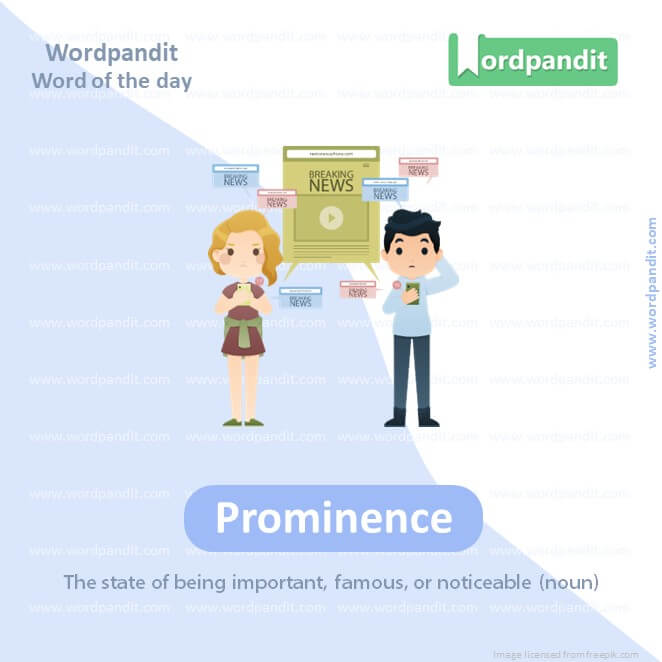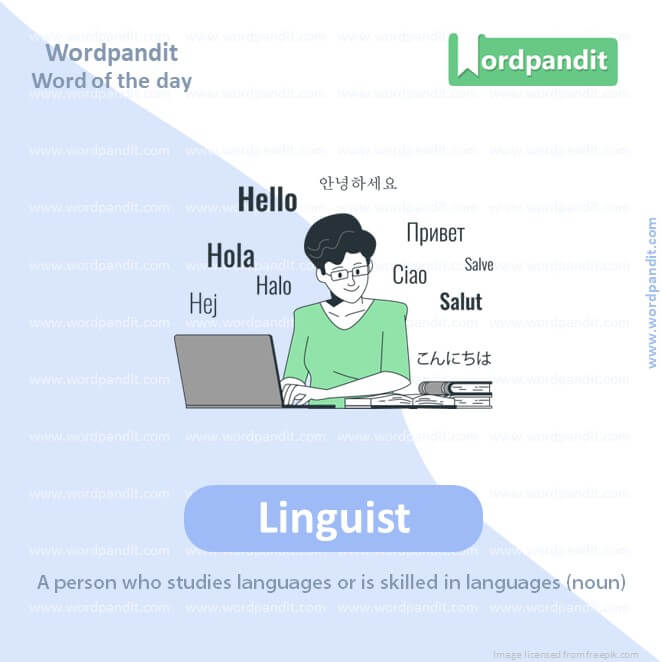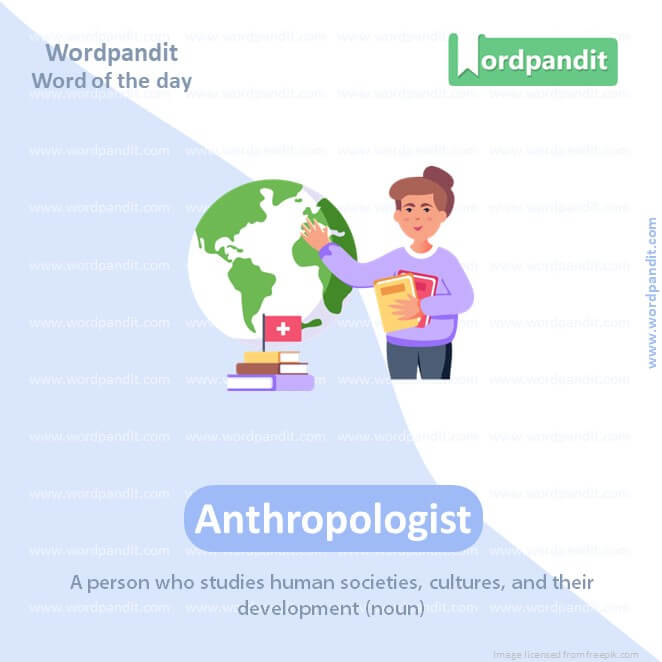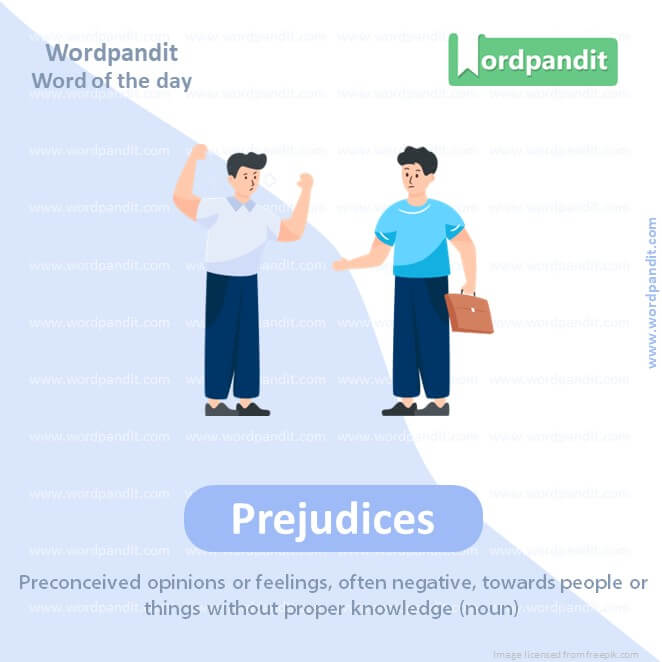Daily Vocabulary Words: List of Daily Used Words in Leading International Newspapers
Hi there. Welcome to this special section @ Wordpandit.
Our endeavour here is very simple: to highlight important daily vocabulary words, which you would come across in leading newspapers in the country. We have included the following newspapers in our selection:
• The New York Times
• The Washington Post
• Scientific American
• BBC
• The Guardian
• Psychology Today
• Wall Street Journal
• The Economist
We are putting in extensive work for developing your vocabulary. All you have got to do is be regular with this section and check out this post on a daily basis. This is your repository of words that are commonly used and essentially, we are posting a list of daily used words. Hence, this has significant practical application as it teaches you words that are used commonly in leading publications mentioned above.
Visit the website daily to learn words from leading international newspapers.

WORD-1: Prominence
CONTEXT: Noam Chomsky rose to fame in the 1960s and even now, in the 21st century, he is still considered one of the greatest intellectuals of all time. His prominence as a political analyst on the one hand, and theoretical linguist on the other, simply has no parallel. What remains unclear is quite how the two sides of the great thinker’s work connect up.
SOURCE: Aeon
EXPLANATORY PARAGRAPH: Prominence is like being at the top of a mountain where everyone can see you. It means being very important or well-known. Like a famous singer who everyone talks about is in prominence.
MEANING: The state of being important, famous, or noticeable (noun).
PRONUNCIATION: prom-uh-nens
SYNONYMS: fame, importance, distinction, notability, renown
USAGE EXAMPLES:
1. The actor rose to prominence after his latest movie.
2. The issue gained prominence in the news.
3. She is a writer of great prominence.
4. The landmark has a place of prominence in the city.

WORD-2: Linguist
CONTEXT: Noam Chomsky rose to fame in the 1960s and even now, in the 21st century, he is still considered one of the greatest intellectuals of all time. His prominence as a political analyst on the one hand, and theoretical linguist on the other, simply has no parallel. What remains unclear is quite how the two sides of the great thinker’s work connect up.
SOURCE: Aeon
EXPLANATORY PARAGRAPH: A linguist is like a language detective. They love learning and studying different languages. They know how languages work, how they change, and sometimes they can speak many languages.
MEANING: A person who studies languages or is skilled in languages (noun).
PRONUNCIATION: ling-gwist
SYNONYMS: language expert, polyglot, philologist, language scholar, interpreter
USAGE EXAMPLES:
1. She became a linguist because she loved learning new languages.
2. The linguist could speak six languages fluently.
3. He is a renowned linguist known for his work on ancient texts.
4. The team hired a linguist to help with the translation.

WORD-3: Anthropologist
CONTEXT: When I first came across Chomsky’s linguistic work, my reactions resembled those of an anthropologist attempting to fathom the beliefs of a previously uncontacted tribe. For anyone in that position, the first rule is to put aside one’s own cultural prejudices and assumptions in order to avoid dismissing every unfamiliar belief. The doctrines encountered may seem unusual, but there are always compelling reasons why those particular doctrines are the ones people adhere to. The task of the anthropologist is to delve into the local context, history, politics and culture of the people under study – in the hope that this may shed light on the logic of those ideas.
SOURCE: Aeon
EXPLANATORY PARAGRAPH: An anthropologist is like a time traveler who studies people and their cultures, both from long ago and today. They learn about how people live, what they believe, and how they behave in different parts of the world.
MEANING: A person who studies human societies, cultures, and their development (noun).
PRONUNCIATION: an-thruh-pol-uh-jist
SYNONYMS: cultural researcher, ethnologist, social scientist, human geographer, folklorist
USAGE EXAMPLES:
1. The anthropologist spent years studying cultures in South America.
2. She is an anthropologist who specializes in ancient civilizations.
3. The museum exhibition was curated by a well-known anthropologist.
4. He published a book on his anthropological findings.

WORD-4: Prejudices
CONTEXT: When I first came across Chomsky’s linguistic work, my reactions resembled those of an anthropologist attempting to fathom the beliefs of a previously uncontacted tribe. For anyone in that position, the first rule is to put aside one’s own cultural prejudices and assumptions in order to avoid dismissing every unfamiliar belief. The doctrines encountered may seem unusual, but there are always compelling reasons why those particular doctrines are the ones people adhere to. The task of the anthropologist is to delve into the local context, history, politics and culture of the people under study – in the hope that this may shed light on the logic of those ideas.
SOURCE: Aeon
EXPLANATORY PARAGRAPH: Prejudices are like having a dislike or unfair opinion about someone before you really know them, just because they are different from you. It’s like deciding you don’t like a food before even tasting it.
MEANING: Preconceived opinions or feelings, often negative, towards people or things without proper knowledge (noun).
PRONUNCIATION: prej-uh-diss
SYNONYMS: biases, discriminations, stereotypes, intolerances, bigotries
USAGE EXAMPLES:
1. The campaign aimed to fight against racial prejudices.
2. Her prejudices about the country were proven wrong after her visit.
3. He was trying to overcome his prejudices to make new friends.
4. The book discusses the prejudices present in the society.
WORD-5: Adhere
CONTEXT: When I first came across Chomsky’s linguistic work, my reactions resembled those of an anthropologist attempting to fathom the beliefs of a previously uncontacted tribe. For anyone in that position, the first rule is to put aside one’s own cultural prejudices and assumptions in order to avoid dismissing every unfamiliar belief. The doctrines encountered may seem unusual, but there are always compelling reasons why those particular doctrines are the ones people adhere to. The task of the anthropologist is to delve into the local context, history, politics and culture of the people under study – in the hope that this may shed light on the logic of those ideas.
SOURCE: Aeon
EXPLANATORY PARAGRAPH: Adhere is like sticking tightly to something. Imagine using glue to stick a paper on the wall, it adheres or sticks to the wall. It can also mean to follow rules or promises closely.
MEANING: Stick firmly to something or follow beliefs or rules closely (verb).
PRONUNCIATION: ad-heer
SYNONYMS: stick, cling, attach, abide by, comply with
USAGE EXAMPLES:
1. The sticker will adhere to any smooth surface.
2. She adheres to a strict diet.
3. It’s important to adhere to the guidelines.
4. The paint didn’t adhere well to the wall.

WORD-6: Delve
CONTEXT: When I first came across Chomsky’s linguistic work, my reactions resembled those of an anthropologist attempting to fathom the beliefs of a previously uncontacted tribe. For anyone in that position, the first rule is to put aside one’s own cultural prejudices and assumptions in order to avoid dismissing every unfamiliar belief. The doctrines encountered may seem unusual, but there are always compelling reasons why those particular doctrines are the ones people adhere to. The task of the anthropologist is to delve into the local context, history, politics and culture of the people under study – in the hope that this may shed light on the logic of those ideas.
SOURCE: Aeon
EXPLANATORY PARAGRAPH: Delve is like digging deep into something, but not with a shovel. It’s like being a detective looking for clues. You delve into a subject when you want to learn everything about it.
MEANING: Dig deep into a subject or investigate thoroughly (verb).
PRONUNCIATION: delv
SYNONYMS: investigate, research, probe, explore, examine
USAGE EXAMPLES:
1. She delved into her family history.
2. The book delves into the mysteries of space.
3. He delved into his backpack looking for his keys.
4. The journalist delved into the story to find the truth.
WORD-7: Intricacies
CONTEXT: The tribe shaping Chomsky’s linguistics, I quickly discovered, was a community of computer scientists during the early years of the Cold War, employed to enhance electronic systems of command and control for nuclear war and other military operations. My book Decoding Chomsky (2016) was an attempt to explain the ever-changing intricacies of Chomskyan linguistics within this specific cultural and historical setting.
SOURCE: Aeon
EXPLANATORY PARAGRAPH: Intricacies are like the small and complicated parts of something. Think about a puzzle with lots of tiny pieces that fit together in a special way. Those little pieces are like the intricacies of the puzzle.
MEANING: Complex details or aspects of something (noun).
PRONUNCIATION: in-tri-kuh-sees
SYNONYMS: complexities, subtleties, nuances, details, convolutions
USAGE EXAMPLES:
1. She admired the intricacies of the woven fabric.
2. The book explains the intricacies of the legal system.
3. The intricacies of the machine fascinated the engineer.
4. Understanding the intricacies of the game took time.
WORD-8: Despised
CONTEXT: I took it for granted that the ideas people entertain are likely to be shaped by the kind of life they lead. In other words, I assumed that Chomsky’s linguistic theories must have been influenced by the fact that he developed them while working for the US military – an institution he openly despised.
SOURCE: Aeon
EXPLANATORY PARAGRAPH: Despised is a very strong word that means to really dislike something or someone a lot. It’s like feeling yucky about eating a food you hate or not wanting to be around a mean person.
MEANING: Felt a strong dislike or disgust for (verb).
PRONUNCIATION: dih-spized
SYNONYMS: loathed, detested, hated, abhorred, scorned
USAGE EXAMPLES:
1. She despised being woken up early.
2. He despised the unfair rules.
3. The villain in the story was despised by everyone.
4. They despised the cold weather.
WORD-9: Conscience
CONTEXT: This was Chomsky’s impossible dilemma. Somehow, he needed to ensure: a) that the research he was conducting for the US military did not interfere with his conscience; and b) that he could criticise the US military without inducing them to cease funding his research. His solution was to make sure that the two Noam Chomskys – one working for the US military and the other against it – shared no common ground.
SOURCE: Aeon
EXPLANATORY PARAGRAPH: Conscience is like a little voice inside your head that helps you know right from wrong. It’s like when you think about whether sharing your toys is a good thing or if telling a lie is bad.
MEANING: The inner sense of what is right or wrong in one’s behavior (noun).
PRONUNCIATION: kon-shens
SYNONYMS: morals, ethics, principles, inner voice, moral compass
USAGE EXAMPLES:
1. His conscience told him to tell the truth.
2. She felt a pang of conscience after lying to her friend.
3. He has a clear conscience about his decisions.
4. Listening to one’s conscience is important in making choices.
WORD-10: Amputation
CONTEXT: He achieved this through a bold stroke of amputation. From the start of his academic career, no part of his scientific work would show up in his political activism, while no trace of his activism would be detectable in his science. Among the inevitable outcomes was a conception of language utterly divorced from what most of us mean by that term.
SOURCE: Aeon
EXPLANATORY PARAGRAPH: Amputation is a doctor’s word for when they have to remove a part of the body, like an arm or leg, usually because it’s very sick or hurt. It’s a big word, but it helps people when a part of their body can’t get better.
MEANING: The surgical removal of a limb or body part (noun).
PRONUNCIATION: am-pyoo-tay-shun
SYNONYMS: removal, severing, cutting off, excision, dismemberment
USAGE EXAMPLES:
1. The doctor performed an amputation to prevent the infection from spreading.
2. After the accident, amputation of the leg was necessary.
3. Advances in surgery have improved amputation techniques.
4. He learned to use a prosthetic limb after the amputation.
Vocabulary English
In the fascinating journey of language exploration, ‘vocabulary English’ stands as a powerful pillar. It represents the diverse array of words that bring thoughts and emotions to life. However, to unlock the full potential of ‘vocabulary English’, it’s necessary to adopt a comprehensive and strategic approach.
Understanding ‘vocabulary English’ goes beyond the mere repetition of words. It demands an intricate weave of understanding, memorization, and application. To grasp the essence of the ‘vocabulary English’, diversify your language resources. Engage with novels, biographies, news articles, and digital content to introduce yourself to words in real-world contexts.
A key to mastering ‘vocabulary English’ involves leveraging effective memory techniques. Use flashcards and digital apps that support active recall and spaced repetition. Mnemonic devices can also be beneficial. Establishing personal, visual, or narrative connections to words foster better recall and understanding.
Consistent exposure to ‘vocabulary English’ greatly enhances learning. Create dedicated time slots for regular vocabulary practice. This method not only consolidates learnt vocabulary but also introduces new words on a daily basis, ensuring a balanced and continuous learning process.
Practice holds the power to transform your ‘vocabulary English’ learning experience. Application of learnt words in daily conversations, professional communication, or digital platforms embeds them deeper into your long-term memory.
In essence, embracing ‘vocabulary English’ is a marathon, not a sprint. It requires immersion in various resources, using memory-enhancement techniques, continuous exposure, and above all, incessant practice. As you navigate this path, you’ll watch your ‘vocabulary English’ grow, raising your language proficiency and connectivity with the English-speaking world. It’s a fascinating journey that opens doors to different cultures, experiences, and opportunities. So, step forth, embrace ‘vocabulary English’, and let the journey begin!







